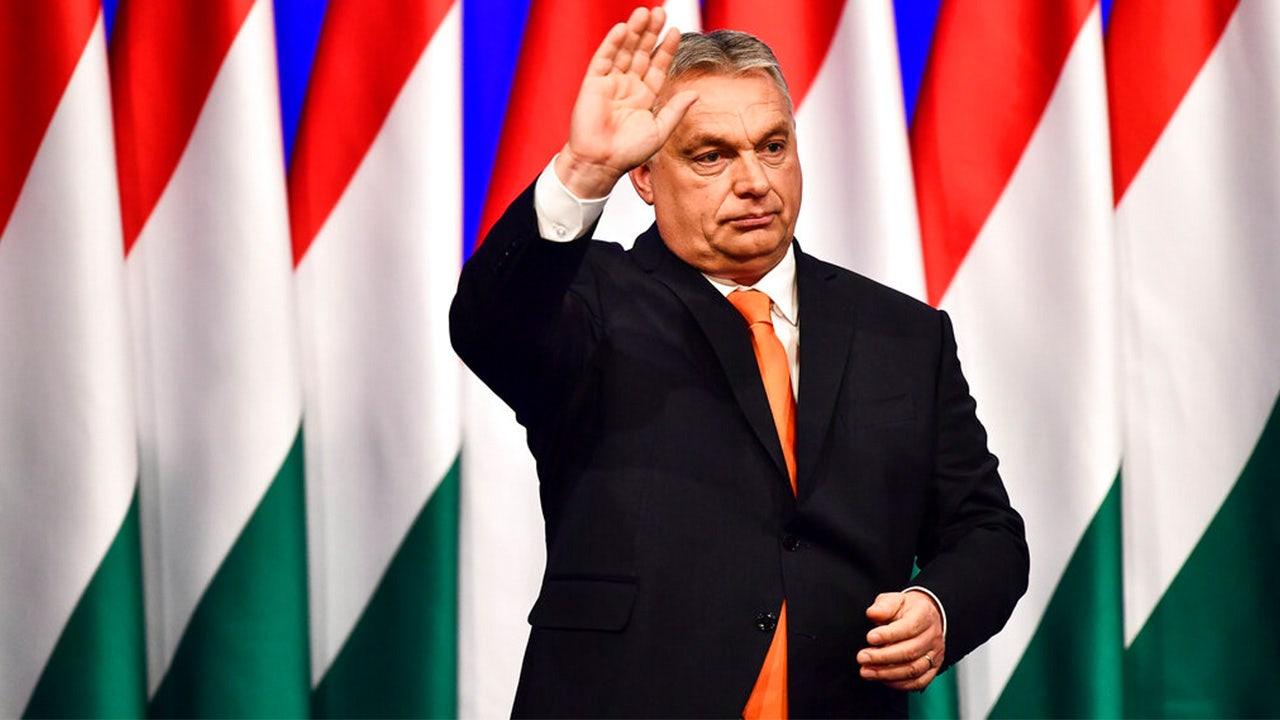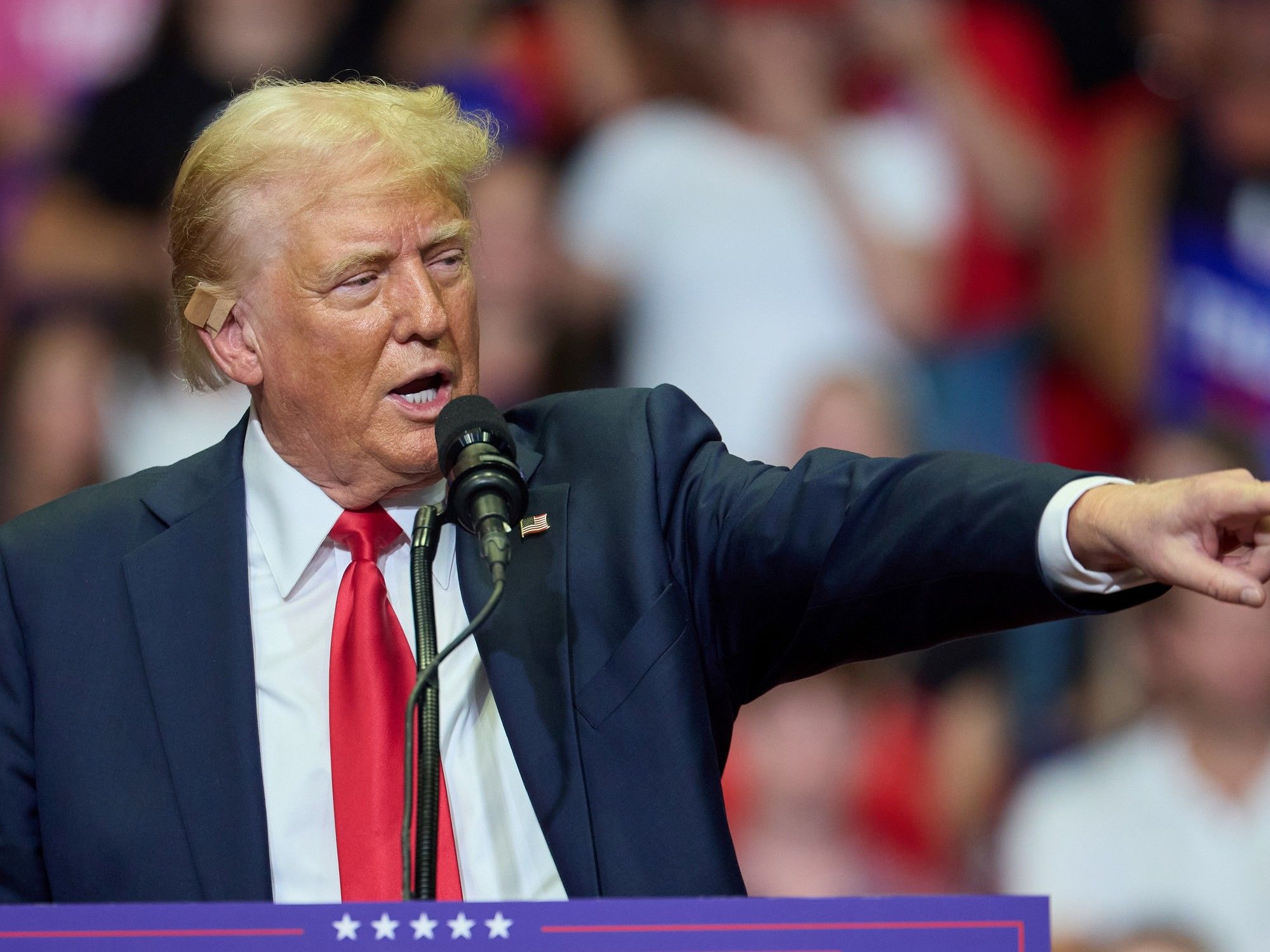INTERNACIONAL
Orbán government takes victory lap, despite party’s worst-ever performance in EU parliament race

The day after Hungarians voted in the European Parliament elections, Prime Minister Viktor Orbán’s government declared a big win, but missing from the victory speeches was an acknowledgement that it was his party’s worst performance in an EU election since Hungary joined the bloc 20 years ago.
The lackluster showing can largely be attributed to the emergence of a new political force in Hungary — Péter Magyar, a former insider in Orbán’s Fidesz-KDNP coalition, who broke with the party and declared his intention to build a popular movement to defeat Orbán and sweep away his autocratic system.
Eleven of Hungary’s 21 delegates to the EU’s legislature will come from Fidesz — more than any of its domestic competitors. After tallying 44% of Sunday’s vote, the government said the result clearly signals overwhelming support for Orbán’s hard-right nationalism.
GERMANY’S CONSERVATIVES FINISH FIRST IN EU ELECTION, AS FAR-RIGHT MOMENTUM SENDS FRANCE’S LEADER SCRAMBLING
«Never before have so many people, 2.015 million, voted for Fidesz-KDNP in an EP election,» spokesman Zoltán Kovács wrote Monday on the social media platform X. «The message is clear: Hungarians say no to war, migration, and gender ideology.»
Nonetheless, Fidesz has never performed so poorly in a European Union election since it joined in 2004. Votes for the party were down sharply from its 52% support in the 2019 polls, and it lost two of its European Parliament seats.
András Bíró-Nagy, an analyst and director of the Budapest-based think tank Policy Solutions, said the power of Orbán — who returned to office in 2010 — has never been more at risk.
«We are in an unknown territory because previously it was not imaginable that a single political party could mount a serious challenge to Viktor Orbán,» Bíró-Nagy said.
FILE – Viktor Orbán waves after his annual state of the nation speech in Varkert Bazaar conference hall of Budapest, Hungary, Feb. 12, 2022. (AP Photo/Anna Szilagyi, File)
Magyar’s new party, Respect and Freedom (TISZA), won nearly 30% of the vote on Sunday, earning seven delegates in the EU legislature. He has said the election would propel his movement into a stronger position to challenge and defeat Orbán in the next national ballot, scheduled for 2026.
Late Sunday, thousands of Magyar’s supporters gathered next to the Danube River to await the election results. Addressing the jubilant crowd, Magyar said his party’s performance was a «political landslide» that would usher in a new era of «useful, fair and, especially, honest» governance.
«Today marks the end of an era,» Magyar said. «This is the Waterloo of Orbán’s factory of power, the beginning of the end,» he said, referring to the battle that ended the Napoleonic Wars.
Magyar campaigned less on a specific party program than a structural critique of Orbán’s system, which he characterized as rife with corruption, nepotism, intimidation and propaganda.
He derided the condition of Hungary’s education and health care systems, accused Fidesz of creating a class of oligarchs enriched with lucrative public contracts, and vowed to form a more constructive relationship with the EU.
Hungary’s traditional opposition parties, through pressure from Orbán’s government and their own fractiousness and infighting, have been unable to mount a serious challenge to Fidesz in the past 14 years.
«The Péter Magyar phenomenon is the symptom of a deep crisis in Hungarian politics,» said Bíró-Nagy. «This reflects not only some disillusionment with the Orbán regime, but it shows the complete disillusionment with the established opposition.»
«Many people in Hungary are craving for something new, are craving for change, and they are willing to support basically anybody who shows potentially some strength against the Orbán regime,» he said.
Magyar’s rise followed a series of scandals that rocked Orbán’s government and prompted the resignation of the president and justice minister. A deep economic crisis, compounded by the highest inflation in the 27-member EU, also led to a drop in popularity for the bloc’s longest-serving leader.
Meanwhile, the EU has frozen more than 20 billion euros ($21.5 billion) to Hungary over its violations of rule-of-law and democracy standards, and Orbán’s friendly relations with Russian President Vladimir Putin have pushed him further into the margins from his EU and NATO allies.
Ahead of the elections, the five-time prime minister campaigned on an anti-EU platform, and cast the ballot as a contest that would decide whether Russia’s war in Ukraine would engulf Europe.
He relied heavily on culturally divisive issues such as migration, LGBTQ+ rights and fears that the war could escalate to involve Hungary directly if his political opponents were successful.
But Fidesz’s weakened position suggests Orbán’s hopes that the EU election would consolidate euroskeptic parties and deliver him a bigger role on Europe’s far-right have likely been dashed.
CLICK HERE TO GET THE FOX NEWS APP
«Orbán has already taken the place of the radical right in Hungarian politics,» Bíró-Nagy said. «But the breakthrough that Viktor Orbán was hoping for didn’t materialize at the European level.»
INTERNACIONAL
«La respuesta es no»: el presidente de Panamá rechaza la exigencia de Donald Trump de bajar los peajes del canal

Sin injerencia de China
-
SOCIEDAD3 días ago
llueven denuncias contra influencers que prometen duplicar la plata en minutos
-
INTERNACIONAL1 día ago
Rusia bombardeó Ucrania en la madrugada de Navidad: ataque masivo con misiles al sector energético
-
POLITICA2 días ago
Victoria Villarruel se despegó de la polémica por el aumento de la dieta de los senadores: «Mi sueldo está congelado desde el año pasado»
-
POLITICA3 días ago
Javier Milei: «El imbécil de Kicillof tenía un bar en Palermo y quebró»
-
ECONOMIA2 días ago
Otro fallo de la Justicia para que no se aplique el Impuesto a las Ganancias al sueldo
-
POLITICA3 días ago
Se profundiza la crisis en el programa de Longobardi: sin acuerdo con Willy Kohan, lo conducirá un locutor hasta enero






























